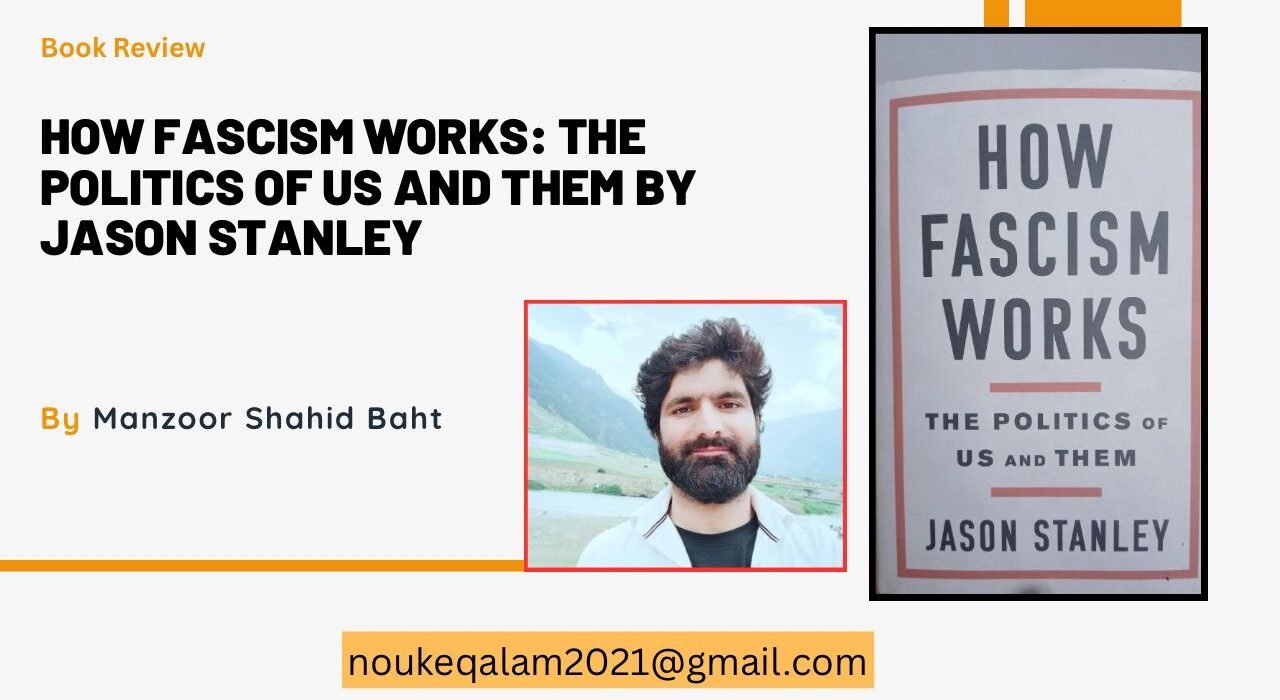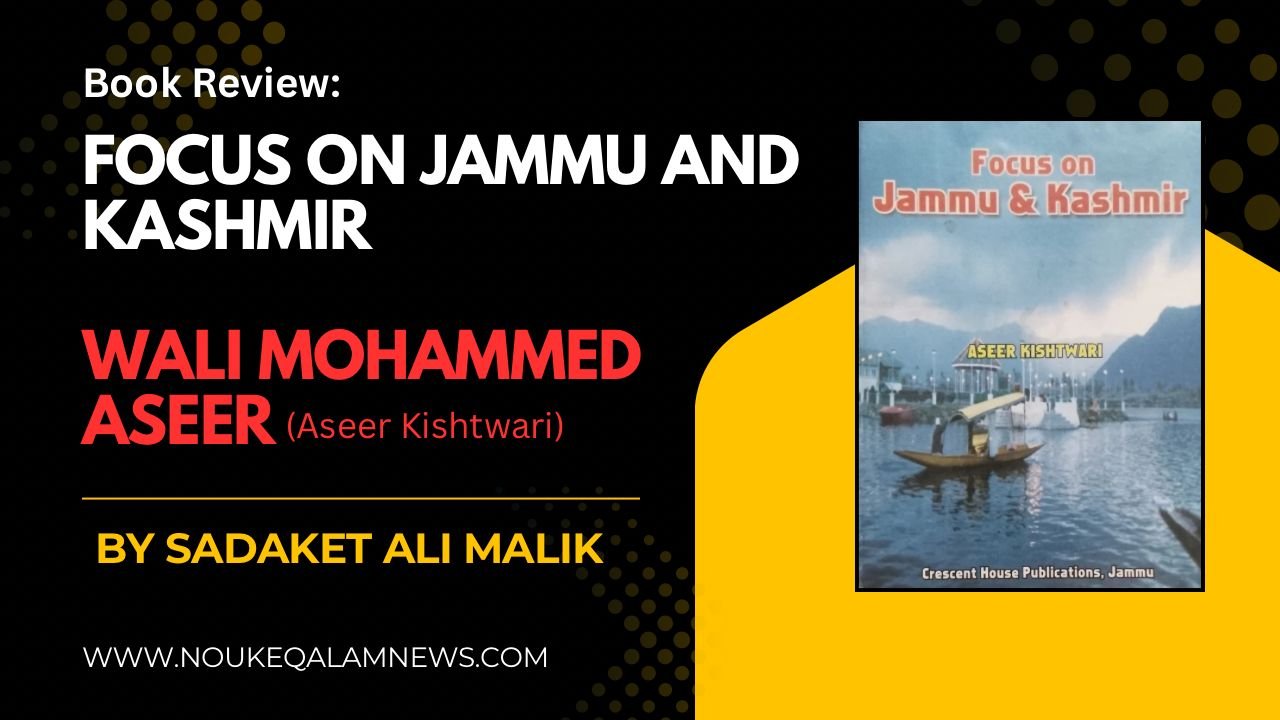✒️:. Shahid Manzoor Bhat
Jason Stanley’s How Fascism Works (2018, Penguin Random House) is a clear and eye-opening book by a Yale professor whose family escaped the Holocaust. He explains how bad leaders use tricks to split people into “us” and “them” to grab power. The book lists ten simple ideas—mythic past, propaganda, anti-intellectualism, unreality, hierarchy, victimhood, law and order, sexual anxiety, Sodom and Gomorrah, and Arbeit Macht Frei—that can weaken democracy. Stanley’s easy-to-read style warns that these tactics aren’t just old history; they’re happening now and can make awful things seem normal.
Around the world, Stanley’s ideas fit today’s problems. Trump’s “America First” or “Make America Great Again” plays on feelings of victimhood and a perfect past, while Hungary’s leader Orbán attacks intellectuals to stay in charge. These moves twist the truth, especially with all the lies spreading online.
In India, Stanley’s ideas match the right-wing radicalization, which some call fascist. The mythic past celebrates a grand Hindu history, supporting a hierarchy that puts minorities, especially Muslims, down. Abdur Rahman’s Denial and Deprivation backs this up, showing how Muslims face poverty, fewer educational opportunities, and less political representation, marking them as “outsiders” in a majority-ruled land. This ties to unreality, where propaganda spreads false fears about minorities, boosting victimhood among the Hindu majority.
In Jammu and Kashmir, these tactics hit hard. The 2019 Article 370 change gave central control, using law and order to quiet dissent—even politics—much like hierarchy and propaganda, where a self-claimed saint is being praised. Recent bans on 25 books in August 2025—including Arundhati Roy’s Azadi and works by Islamic scholars—show anti-intellectualism, like in Italy where Giuseppe Mazzini, a revolutionary, faced punishment, labeling resistance stories as “secessionist.” Police raids on shops and educational institutions, with inspections and claims that “history is being erased,” highlight unreality, wiping out local voices for a single story and pushing minority silencing further.
Hierarchy suggests some are naturally above others, while victimhood makes the powerful act hurt. In India, some say the majority is under attack, even when they’re in charge. Law and order targets certain people with tough laws, like jailing critics. Sexual anxiety stirs fear about mixed marriages, like the “love jihad” idea. Sodom and Gomorrah lift up simple village life while blaming cities, and Arbeit Macht Frei (“work sets you free”) pushes hard work for some, calling others lazy.
This book feels so important right now, with the world so split. Stanley urges us to fight for fairness and democracy. It’s a must-read to understand these divides and stop them from getting worse.





